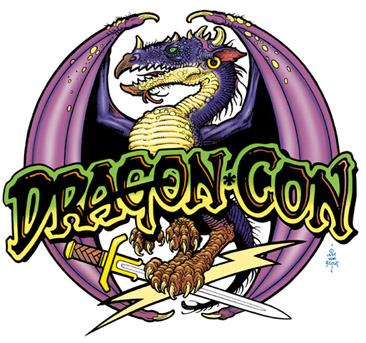Fanboy News Network Episode 27
discussion on recent conventions
Burning man
Recent changes at Marvel Studios
DC’s 2 million dollar shortfall and what they are doing about it
Marvel is the wake of Secret Wars
Daniel talks about books

Fanboy News Network Episode 27
 It’s that time of year again. San Diego Comic Con was last week, and as it is the premier geek culture event of the year and we are a site that covers geek culture, I am obligated to say something about this year’s event, even though I am not able to attend.
It’s that time of year again. San Diego Comic Con was last week, and as it is the premier geek culture event of the year and we are a site that covers geek culture, I am obligated to say something about this year’s event, even though I am not able to attend.
Last year I focused on the problems of just getting to the convention, with record sell-out times. Everything I wrote about that is still relevant this year. The other area I focused on was San Diego Comic Con drifting from its original focus and becoming more of a media show, and in that arena there is more debate this year.
The crux of that complaint is that major portions of the show floor have been bought up by media companies who are pushing their various movies, TV shows, and other non-comic-book-related media. This has pushed out more comic-focused vendors and driven up the price of booth space. To be fair, most of these media companies are focusing on product relevant to geek culture, but not exclusively. An example was a couple of years ago when there was a booth for the NBC show The Playboy Club which, let’s face it, was not geek culture. On the other hand, it was a small booth and the show did bomb.
There is also the complaint that panel time is taken up with shows that have dubious geek credentials, such as How I Met Your Mother and Psych.
But how fair are these complaints?
During the convention prominent comic writer Gail Simone went on twitter to address these concerns and ask some pointed questions.
The first point was to ask if fans were asking for more comic-focused content. If so, she pointed out that every major comic publisher and most minor ones had booths at the convention. She could not think of one that was not there. Also the majority of convention panels were comic industry focused. She said that if you took out all the other media at the convention, you would still have the largest comic convention. So is there really too much other media at San Diego Comic Con, or does it just seem that way because of what other media covers?
She does concede that small vendors and people in artist alley do get marginalized and could use more love. However, this could be said of any comic convention; it is just magnified at San Diego Comic Con.
The feedback from some of the web comic creators at the show illustrates that point. Randy Milholland, creator of Something Positive, commented throughout the show that he was not making enough money to justify the expense of traveling to the convention. He said he lost a few thousand dollars, and of course the time lost that he could have been working, so he says this will be his last year going. I have heard similar tales from Studio Fogilo, but they still attend; although I suspect more for contacts and publicity.
But I think the best summation of what is going on with San Diego Comic Con came from web reviewer Leo Thompson, who hosts the show That Sci Fi Guy. Thompson was explaining the difference between San Diego Comic Con and Dragon*Con. His conclusion is that San Diego Comic Con is a trade show, where Dragon*Con is a fan-focused convention. To build on his point, I would say that this would be like the difference between E3 and PAX in the gaming community . A lot of fans would go to E3 when it was open to the public, but it is acknowledged that it is an industry show; where PAX is very clearly focused on the actual fans.
If we assume that Thompson is right, the question becomes: is this a bad thing? My gut check is that if this were how San Diego Comic Con was openly presented, then no it is not; but right now that is not the case.
I think this bears more analysis, and I will look at it again after Dragon*con happens later this year.
In the meantime, please let me know what you think.

Dragon*Con Logo
Originally I had no intention of writing about the situation surrounding Dragon*Con and the calls to boycott it. Not that they weren’t interesting or relevant to geek culture, but others had made the same points I would and I didn’t feel I had anything new to add.
So what changed?
Recently I have been reading a lot of exchanges online about Dragon*Con and the boycott effort. The problem is that in a lot of those exchanges I have seen a lot of emotion and a casual disregard of facts. As a one-time journalism major and a fan of the @willMcAvoyACN twitter account I feel strongly that facts are important. So let us take some time here and now to look at the facts as I have been able to learn them.
Dragon*Con is a for-profit convention founded in 1987 in Atlanta, Georgia. Originally a science fiction convention, it has grown to be more of a multi-genre convention, embracing almost all aspects of geek culture. It currently boasts an attendance of approximately 52,000.
One of the convention’s founders is a man named Ed Kramer. Besides working with the convention, Kramer edited several books working with such well-known authors as Neil Gaiman, Nancy A. Collins, and James O’Barr.
In 2000, Kramer was arrested and charged with molesting three teenage boys. Due to a combination of legal actions and health issues he has yet to face trial on those charges. After the charges were made, Kramer was removed from Dragon*Con’s board and is no longer involved in running the convention; however, he retains his shares in the company. In 2009, Kramer posted a bond that allowed him travel privileges in order to attend his health needs and visit his mother. While on one of these trips in 2011, Kramer was caught in a motel room with a 14 year old boy leading to his arrest and further charges. He fought extradition back to Georgia to face the original charges. Last January that extradition went through and he is back in custody in Georgia.
The call for a boycott of Dragon*Con comes from Kramer’s status as a shareholder. Kramer owns 31% of Dragon*Con shares, which means he is entitled to profits from the convention. In 2011 those shares netted him $150,000.
The call to boycott Dragon*Con was started in January by Nancy A. Collins. Her contention is that Dragon*Con has not done enough to remove Kramer as a shareholder, and that they should dissolve the corporation and reform under another name.
In February Dragon*Con made a public statement on the matter. It pointed out that Kramer has no hand in running the convention at all since 2000. It also points out that efforts have been made to buy out his shares of the convention but Kramer responded by suing them. They also explored the option of dissolving the corporation and reforming, but that was not a possibility right now. Follow up on that last point revealed that under Georgia law, a corporation cannot voluntarily dissolve as long as there are pending legal disputes, so Kramer’s lawsuits prevent that option. Some have suggested trying to force Kramer to sell his shares, but that cannot take place until after he has been convicted, since he is presumed innocent under U.S. law until then.
So those are the facts of the case. Where does that leave us?
Based on all the above facts, there are only three factors that will prevent Kramer from receiving funds from Dragon*Con:
1: He is finally convicted, at which point new legal avenues open up for the convention
2: He dies. The man does have health issues, including the need for an oxygen tank. One of the major reasons he has not faced trial yet is the contention by his lawyers that he is not healthy enough to sit through a lengthy trial. Based on that, It’s not farfetched to presume that he does not have that long to live.
3: Dragon*Con folds. Let’s face it, if the convention dies, that would prevent Kramer from receiving any more funds from it.
This leaves us with some of the back-and-forth debate that has being going on between those in favor of the boycott and those against.
The major point that those in favor of the boycott make is that denying money to the convention ultimately denies money to Kramer. This is a straight forward point, and can’t be argued with.
The counter that is made is that a financial loss to Dragon*Con can have a ripple effect on several people, including other employees of the convention, the vendors that depend on Dragon*Con as a major source of their annual income, and local businesses like the hotels and restaurants in the area.
Also on the anti-boycott side is the claim that despite the boycott, Dragon*Con is so big that it will still turn a profit.
The counter to this is that even if that is true, the boycotters can take comfort in knowing that their money did not go to this, and thus did not support Kramer.
There have been some suggestions that the current organizers of the convention just abandon Dragon*Con and start a new competing convention.
This is a really tricky one because it looks good on paper, but falls apart in reality.
Basically it would require creating a new convention from scratch, with no access to any of Dragon*Con’s assets. They would not have the advantage of the Dragon*Con brand name, and they would need to negotiate new contracts with new convention sites. They could not use the old sites, as they have multi-year contracts with Dragon*Con.
Is it doable? Yes, of course it is.
Is it something they are likely to do? No, because the hassle would be enormous, and there would likely be new rounds of lawsuits, not only from Kramer, but most likely the hotels and other venues they have multi-year contracts with.
In the end this is not the black-and-white issue that everyone wishes it was. Every person touched by this situation is going to need to do what their conscience directs them to do.
All I ask is that when deciding what your take on it is, you keep in mind the facts.